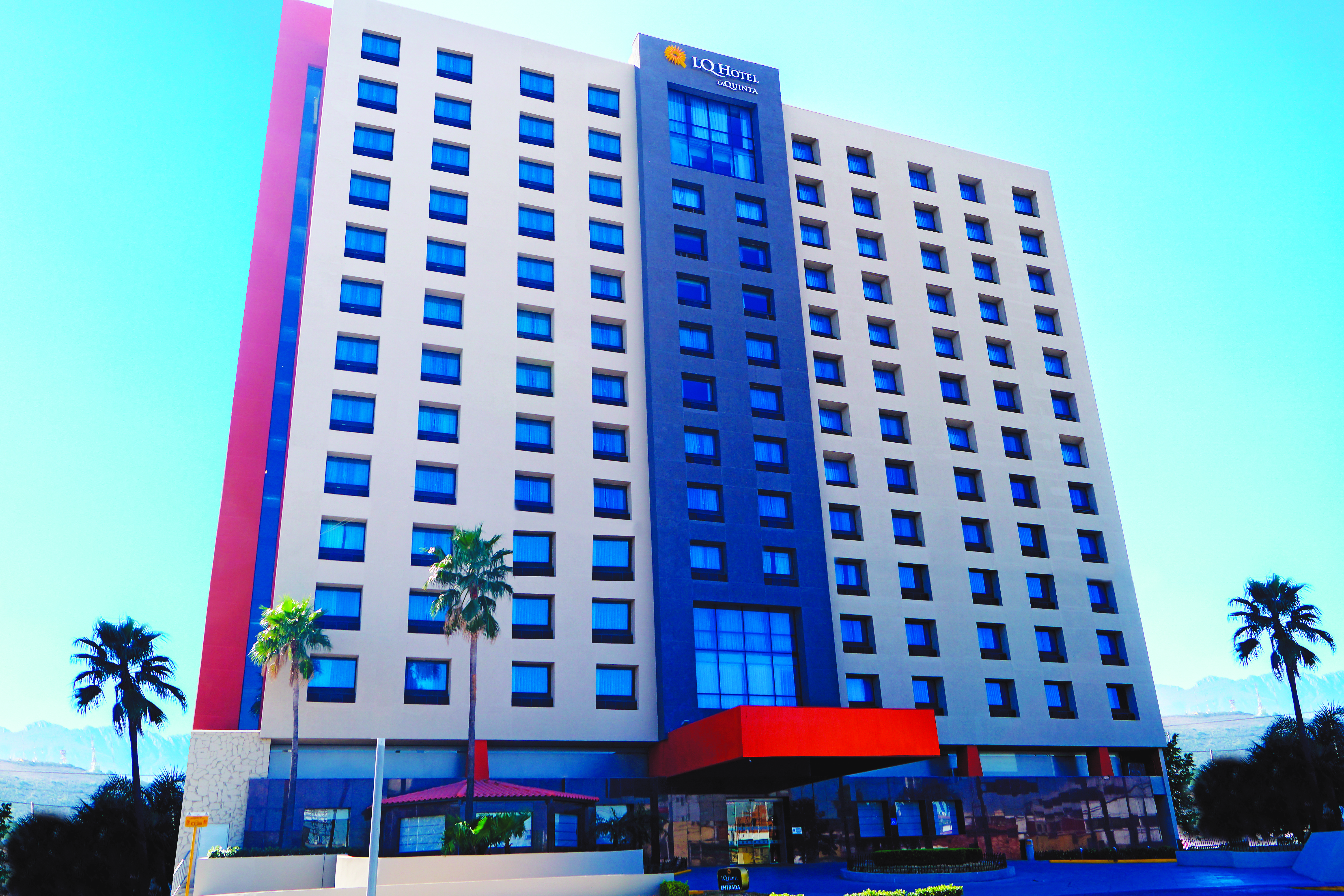Prior to joining La Quinta Inns & Suites in 2013, Keith Cline made his livelihood in corporate retail, holding executive and senior leadership roles at companies such as Express, Charming Charlie and L Brands (think Victoria’s Secret). He began his career at Arthur Andersen & Company and graduated summa cum laude from the University of Akron in Ohio with a bachelor of science in accounting and a master’s degree in finance. “I have had the privilege of working in organizations with incredibly strong cultures throughout my career,” he said. “I firmly believe—and the evidence that supports this belief—that organizations with strong cultures and a well-defined set of core values will outperform their peers over the long term.”
La Quinta is Cline’s first hospitality company, but he believes that his experience in other markets will serve the hotel brand well. “At the end of the day, what is the hospitality business?” he asked rhetorically. “It’s a connection between a consumer and a brand. You’re eliciting some kind of emotion with that business.” Shoppers and hotel guests alike both want the right product at the right price, he explained, and want to feel a connection to the business.
“In terms of managing rapid growth, my prior experiences have prepared me well to lead in a high-unit-growth environment,” Cline said. “The key to growing efficiently is having the best people and a well-defined strategy built upon a scalable infrastructure. And that’s exactly what La Quinta has.”
The experience that translates the best to the hospitality industry, Cline said, is the time he spent in multi-unit specialty retail. “The needs of the retail industry might be different, but the outcome that you are trying to elicit from the consumer is the same. It’s all about driving engagement.”
Cline developed as a CFO in brands where the financial people “weren’t really numbers people,” he said. “We were operators; we were marketers.” In the retail industry, a salesperson drives demand, he explained. “In the hospitality business, you are taking demand. In both cases, you are doing it with the same two attributes: product and experience. [The person who delivers the] best product and best experience typically comes out on top. Leaders that develop through the financial ranks of leading specialty retailers are more than numbers guys. It’s in the operations, marketing, merchandising, planning and allocation, and supply chain that you obtain deep knowledge and experience. And all of these translate well to hospitality.”

This outside-the-box mindset helped at La Quinta, where he worked alongside EVP and CDO Raj Trivedi on the development side and with chief marketing officer Julie Cary on franchising, focused on partnerships, marketing and customer analytics as well as number-crunching. “I wanted to get engaged in the areas that maybe, historically, the CFOs haven’t been engaged in,” he said.
Notably, as EVP and CFO, Cline helped guide La Quinta through its initial public offering, and 2015 was the company’s first full fiscal year as a public company. “This is the second company that I’ve taken public,” he said, referring to his work at clothier Express in 2010. “Really, the only thing that changes when you make that transition is you now have different governance standards and things that occupy your time,” he said.
Today, Cline estimates that 40 percent of his job is different from when the company was private, focused on the markets, stock price, the shareholders and the equity analysts. “For me, we were in that zone for 18 months,” he said. “Right now, I’m in the same zone, but sitting in a different chair.”
CONSTANT CHANGE
The past two years have each seen major changes for La Quinta—going public in 2014 and a major change in leadership in 2015. By the end of last year, a transition for the company’s call center, destructive storms in Texas and the prolonged depression in the production and pricing of oil all set the stage for a 2016 that may prove equally dramatic. “We’re going to continue to see, industry-wide, a bit of a softening in occupancy, a little bit of a flattening in [average daily rate]—which the industry in general is experiencing,” he said. “It’s amazing how much things can change in 24 months. It’s a rapidly changing industry and a rapidly changing consumer environment.”
In his new role, Cline feels that his—and his team’s—main objective will be pursuing demand drivers in those markets that are less impacted by the falling price of oil. “There are plenty of demand drivers,” he said. “It might not be 100-percent occupancy and $250 a night, but it’s going to be a strong performance that drives good cash flow in those markets.”
La Quinta’s key initiatives for 2016 include an accelerated renovation program for the company’s owned hotels; improving value through a strategic real estate plan; enhancements to the hotel operating model; and new features and benefits for La Quinta Returns loyalty members.
“Our typical renovation program has consisted of 25 to 30 of our owned hotels each year,” Cline said. “This enhanced program contemplates to renovate an additional 100 to 120 hotels over the next two years by investing an additional estimated $60 million in capital in each of the next two years.
“We will also carefully review our remaining owned hotel portfolio to identify assets that potentially should exit the La Quinta system because they no longer meet our high standards for providing guests an exceptional experience. Selling these properties would, in turn, open up additional markets for our franchise development team to sell into. “We have also been testing enhancements to our hotel operating model over the past quarter in select markets and have seen a measurable positive response from our guests. These enhancements have primarily taken the form of supplementing our front desk coverage at our own hotels at peak hours.”
GLOBAL EXPANSION
Expanding domestically and in Latin America remains a priority for La Quinta. “Currently, we have the capacity to enter more than a quarter of STR’s market tracts, and as compared to our largest and most direct competitors, we have an additional penetration opportunity in many of the STR market tracts where we are currently present,” he said.

As of the end of last year, the company’s franchise pipeline comprised 228 hotels, representing more than 20,500 rooms. Approximately 12 percent of this pipeline represents locations in Central and South America, including locations in Colombia, Guatemala and Nicaragua. “We believe this pipeline represents a significant embedded growth opportunity for the brand,” Cline said.
OIL IMPACT
Another issue affecting La Quinta’s numbers is the recent (and ongoing) oil crisis. Several years ago, major American oil markets had what Cline calls “extraordinarily artificial demand,” which then drove high—and artificial—pricing in hotels. With so much business in these markets, rooms that used to charge $75 or $80 per night could start to charge several hundred dollars per night instead.
“In those markets, when oil was booming and production was high, this is what you get,” he said. But as oil pricing drops and production slows down, local hotel demand also decreases and rooms go unrented, forcing owners and managers to lower the costs. “What you see is that hotel’s pricing and occupancy start to moderate down to what that hotel should have been doing,” Cline said.
Rather than losing money, Cline said, hotels in oil communities are normalizing toward how they performed historically. “Over time, these hotels will normalize back to ‘sister location’ performance and be very strong contributors to our brand,” he said.
Looking ahead, Cline said, oil companies will continue to produce and supply will continue to grow—“albeit production is at a lower level,” he said. “Consumption is not going to slow down. We’re going to need some period of time for consumption to eat into some of the supply that’s out there before you see prices start to move.” That movement, however, could take a while, he said. “Our job today is to pursue the strategies we laid out for La Quinta—make it a better, stronger brand, and continue to pursue demand drivers in those markets that are outside of oil.”
